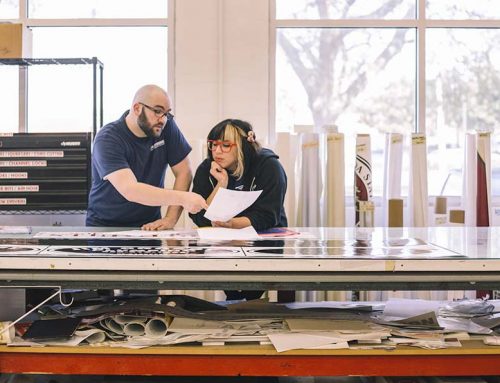So, you’ve decided to buy commercial property for your small business. That’s great! There are many benefits to owning rather than leasing, including flexibility, fixed costs, equity, and property control. Now, of course, the question is how to finance your purchase.
If you’re like most small business owners, you don’t have enough cash to purchase a commercial property outright. Even if you do, you may not be in a good position to tie up that liquidity into something like commercial real estate. Or, you may find value in leveraging property. Whatever the case, chances are you’re going to need to weigh borrowing options.
Before you do so, make sure you’ve been profitable for the last two years. Most lenders will want to see this far into your business’ revenue history, so it’s wise to be in good standing. Also make sure you’re being realistic about the property you’re looking to purchase. Consider how big you expect your business to grow in the future, and seek appropriately sized spaces.
Once those steps are complete, it’s time to consider your options:

Which small businesses loans are available for purchasing real estate?
Traditional Bank Loans
Banks have been a source of commercial real estate financing for a very long time. While changes in the market have caused shifts in the process today, traditional bank loans are still a viable borrowing option for many.
For example, if you have a good relationship with your existing bank, that might make them more open to originating a loan. This is especially true if you are able to make a significant down payment. Real estate is a great asset in a bank’s eyes; it’s just a matter of finding borrowers they trust in the current real estate landscape.
Because real estate is a desirable asset, banks can be flexible with underwriting and terms. Still, if the conditions aren’t right, your bank may steer you towards an SBA loan. These lower the bank’s risk.

Small Business Administration (SBA) Loans
When a business gets an SBA loan to purchase commercial real estate, a portion of the loan is guaranteed by the government. When a bank is involved, the financing comes in the form of a 504 loan. This loan means the bank loans 50% of the purchase price and the government loans 40%. There is also a 7(a) loan, in which the government lends 90% of the price, and no bank is involved.
Both of these scenarios require only a very small down payment of 10%. They also have low fixed interest rates and other benefits. For example, the 7(a) loan is a general purpose loan that also covers repairing commercial property., and thousands of options25 years and fixed rates ranging from 7% to 9.5%, it’s certainly competitive against bank lenders. As for the 504 loan, expect big savings and the ability to purchase and upgrade real estate and business equipment. The 504 term is 20 to 25 years, with fixed rates as low as 5%, making it a highly desirable option.
Qualifying for an SBA loan is tough, and not everyone makes the cut. In fact, for many small businesses, the requirements to remain in good standing under an SBA loan can prove too risky or financially restrictive.

Commercial Lenders
Banks and the government are far from the only sources of commercial lending. Finance companies such as PRC, for example, are happy to work with small businesses to create real estate loans that work for everyone.
While rates can be higher through these lenders, there are many benefits. Flexible underwriting, fast approval, and lower fees and closing costs are just a few. Unlike banks, commercial lenders also have many sources of capital. Their often extensive network of financial partners, including banks, also means that they can offer multiple types of financing, and tailor a loan to each small business owner’s needs. Commercial lenders can even assist with SBA 7(a) loans!
Other financing options through commercial lenders include CMBS loans, bond financing, insurance company loans, and more. For many borrowers, the diverse options mean buyers are able to reap desired benefits such as non-recourse loans and flexible terms based on good credit and low leverage. Additionally, the experts at commercial lending institutions are well-versed in reading the current market and helping borrowers tease out the best balance of financial sourcing.





CONNECT